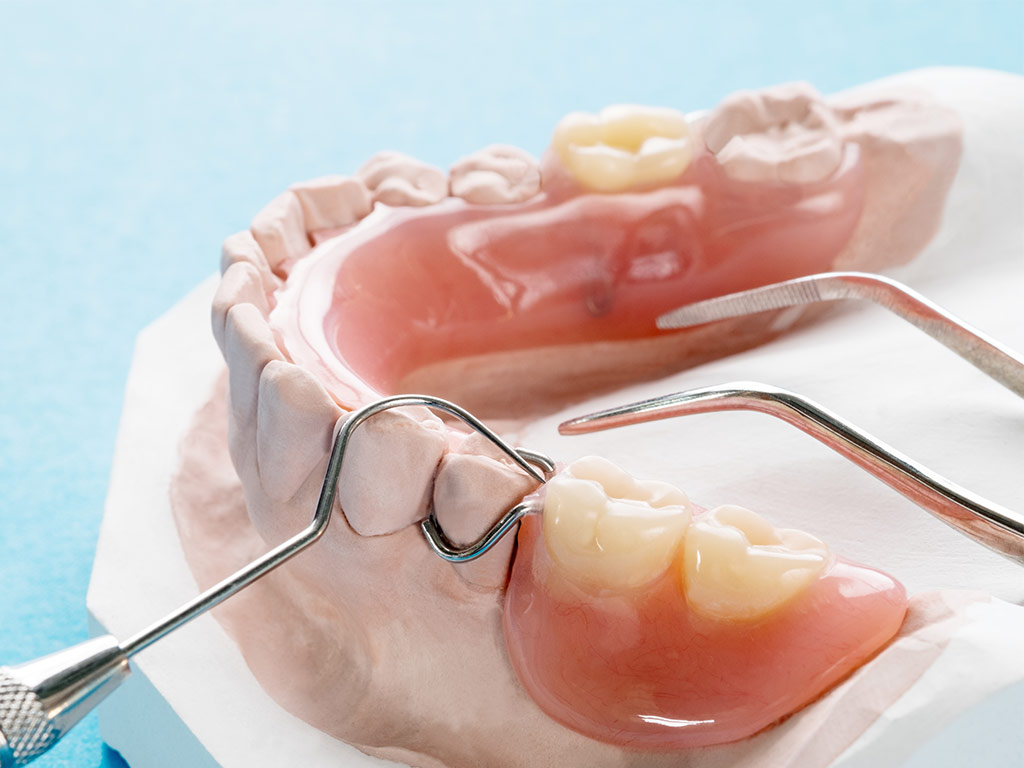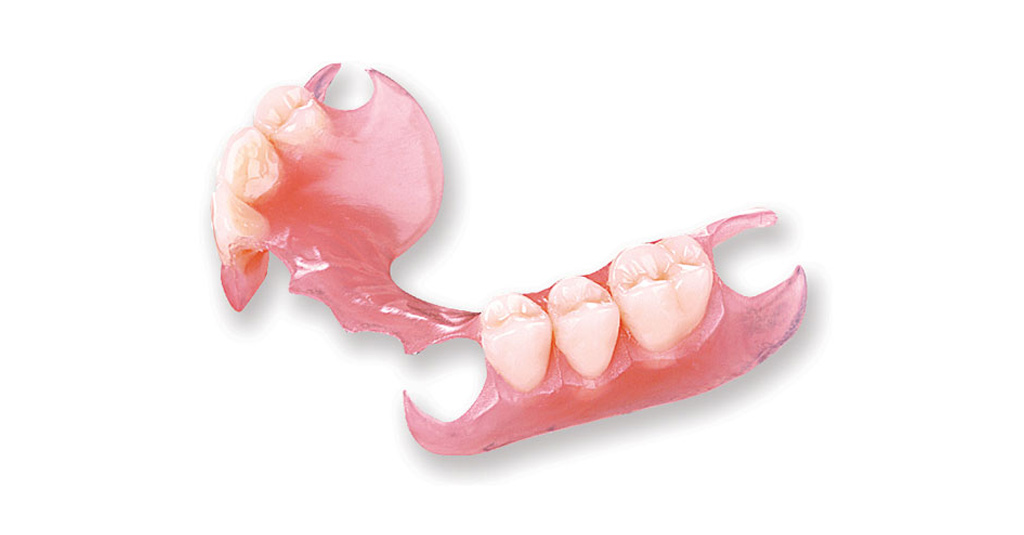 09 Jul 2021
09 Jul 2021
What is a Removable Partial Denture ?
If you are missing teeth, you may be wondering if dentures are a possible tooth-replacement solution. There are many different types of dentures available today, each one filling a different set of needs. Patients who are missing all their natural teeth can benefit from a complete denture, while patient who are only missing a couple of teeth can benefit from a partial denture.
Like its name suggests, a partial denture acts as a replacement for only the teeth you are missing and does not replace the entire upper or lower set of teeth. There are many different types of partial dentures available, depending on which teeth you are missing. There are partial dentures which replace missing front teeth to help patients feel confident in their smiles and there are also partial dentures that can replace your missing back teeth.
If you are missing the teeth at the back of your gums (also known as your molars), you might be wondering if a partial denture will actually benefit you since people cannot see that you are missing teeth when you talk or smile. The answer is absolutely YES! While there may not be many cosmetic benefits, getting a partial denture to replace your molars is critical for good oral health. A partial denture has many benefits for patients without their back teeth, including:
Support for your existing teeth

Losing even a single tooth can have a negative impact on your jaw. A missing tooth causes your bite pressure to chance, which impacts the jawbone. Missing teeth create a lack of stimulation to the jawbone, which can lead to structural changes in your cheeks and bone volume loss which cause your teeth to shift. This is because your existing teeth will naturally move to fill the spot left by the missing tooth.
A partial denture is important for patients missing their back teeth because it will support the structure of your mouth and keep your jawbone engaged to stop your remaining natural teeth from shifting. This will not only help prevent the loss of your remaining teeth but also preserve your beautiful smile.
Support for your upper denture
Having a partial denture is crucial for patients who wear an upper denture. Complete upper dentures rely on your molars for support, especially when eating and talking. Missing back teeth can lead to an ill-fitting upper denture if it loses suction.
Proper Nutrition
Partial dentures are not only helpful for good oral health but your physical health, as well. Your back teeth, also known as your molars, are how we eat solid and crunchy foods. They help crush, grind, and mash food to make it easier to swallow. Without back teeth, it will be difficult to eat crunchy or hard foods, such as vegetables, nuts, and red meats. These foods are all part of a healthy diet and need to be eaten.
Partial dentures replace your missing teeth and can perform most- if not all- of the same functions. This will make it easier to eat the foods required to maintain a healthy diet.
Preventing gum disease
Once eating becomes a challenge, you’ll notice that the gums where the missing tooth used to be will become irritated. Your gums can become red and inflamed, which can be very uncomfortable. If left untreated, the gum space becomes susceptible to gum disease. This can spread through the rest of your gums and even to the surrounding teeth and underlying bone.
Partial dentures are available in both fixed and removable forms. Each type of partial denture offers different benefits and costs a different amount, depending on your how many teeth you are missing and your overall oral health. Your denturist will explain the different partial denture options that are available to you during your consultation appointment, including:
Removable Partial Dentures
Cast Metal Partial Denture
A cast metal framework is the most common type of partial denture used by denturists today. They are made up of a gum-coloured acrylic base and high-quality replacement teeth which are held together by two or more metal or hard plastic clasps. Patients often like a cast metal framework because of its light weight and advanced durability, which make it a long-term solution. With proper care, this partial denture is also resistant to plaque build-ups.
Acrylic Partial Denture
An acrylic partial denture consists of a removable acrylic base and replacement teeth, which are often held together by metal clasps. Since they are not as durable or comfortable as a cast metal partial denture, acrylic partials are more commonly used as a temporary solution.
Flexible Partial Denture

A flexible partial denture is made from a flexible, plastic material, which offers a great alternative for patients who are allergic to acrylic. These dentures also more closely resemble your natural teeth and gums. However, flexible partial dentures can be very difficult to repair if they get cracked and often need to be completely replaced. Because of this, flexible partial dentures are usually used as a temporary solution.
Fixed Partial Dentures
Fixed Bridges
Fixed bridges are non-removable dentures that are surgically implanted in your jawbone. While this may sound intimidating, they actually provide many benefits to the wearer, such as increased comfort, durability, and a natural-looking aesthetic. Because of their fixed nature, fixed bridges are a long-term permanent solution. There are different types of fixed bridges, including Traditional, Cantilever, Maryland, and Implant-Supported.
If you are ready to take the next step in replacing your missing molars, talk to your denturist to find which partial denture best fits your needs, budget, and remaining teeth. Whether you are interested in removable or fixed partial dentures, the experienced team at Olds Denture & Implant Centre can handle it all.
Take advantage of a FREE consultation and talk with Mike and his team about how a partial denture can benefit you. Give them a call today at (403) 791-3303.

